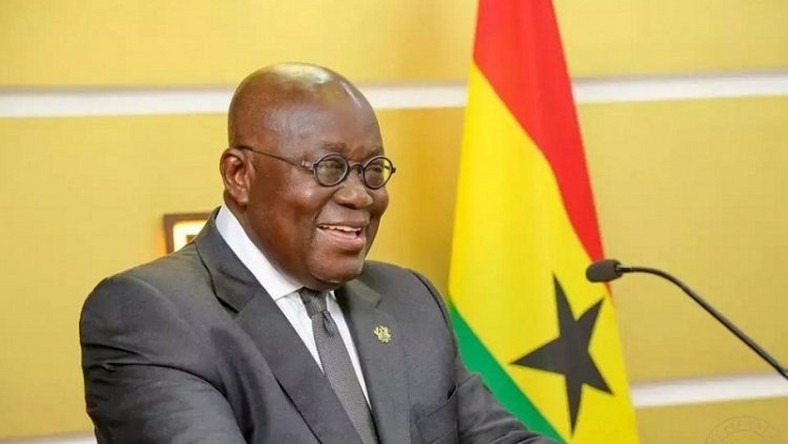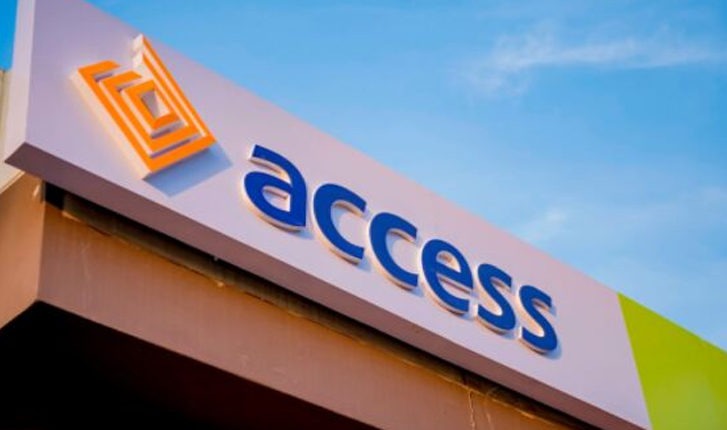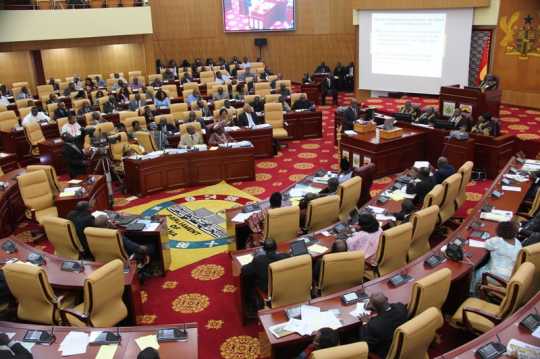President Nana Akufo-Addo today visited the Luxembourg headquarters of the European Investment Bank and welcomed EUR 82.5 million Team Europe support for new investment to strengthen healthcare, provision of specialist medical equipment and medicines across Ghana under the national COVID-19 Health Response Plan.
The concessional Team Europe financing package comprises a EUR 75 million loan from the EIB and EUR 7.5 million European Commission grant.
The new loan, representing the EIB’s largest support for COVID related health investment in sub-Saharan Africa, was signed by Hon Kwaku Ampratwum-Sarpong, Deputy Minister for Foreign Affairs and Regional Integration, and Ambroise Fayolle, European Investment Bank Vice President, in the presence of President Nana Akufo-Addo, EIB President Werner Hoyer and Harriet Siaw-Boateng, Ambassador of Ghana to the European Union.
“Strengthened cooperation between Africa and multilateral development partners is crucial to share global best practice and ensure a rapid response to health, social and economic challenges triggered by the COVID-19 pandemic. The European Investment Bank and the European Union are key partners for Ghana and I welcome their support for our national COVID-19 Health Response Plan. Ghanaian and EIB experts have worked tirelessly in recent months to finalise this initiative, since President Hoyer and I met earlier this year. Specialist healthcare and medical services will benefit from both the EIB’s largest backing for COVID health resilience in Africa and EU grant support.” said President Nana Akufo-Addo.
“Ghana has taken significant steps to manage the impact of COVID and to unlock long-term investment. A few months ago President Akufo-Addo and I confirmed EIB backing for the Development Bank of Ghana. It is an honour to welcome our Ghanaian friends to our Luxembourg headquarters to discuss how to improve our partnership in the years ahead and increase impact.” said Werner Hoyer, President of the European Investment Bank.
“Ghana is a key partner for the EU. We are committed to step up our strategic partnership bilaterally, supporting our renewed partnership with Africa. Europe and Ghana stand side by side to tackle the health challenges triggered by the COVID-19 pandemic, including diagnosis, treatment and vaccination. The new Team Europe support for Ghana’s COVID-19 Health Response Plan will strengthen public health systems and enhance resilience to the pandemic and future health threats across Ghana through new investment backed by the European Union and European Investment Bank.” said Jutta Urpilainen, European Union Commissioner for International Partnerships.
The meeting provided an opportunity to discuss recent EIB support for the retrofit of the Kpong Dam, Development Bank Ghana and COVAX, explore future cooperation to support local vaccine manufacturing and outline the EIB’s strengthened engagement in Africa through a new dedicated development finance branch to be launched in the new year.
Largest national EIB support for health investment in Africa
The new agreement with Ghana represents the largest national EIB financing for COVID related health investment in Africa.
The EIB and EU backed health investment will improve medical treatment for patients with COVID at Treatment and Isolation Centres and Intensive Care Units, as well as measures to detect and contain the virus and slow down transmission. The initiative will both enhance medical treatment during the pandemic and enhance public health in the years ahead.
Ghana was the first country in Africa to receive COVID-19 vaccines under the EIB and EU backed COVAX initiative. EIB experts also briefed President Akufo-Addo on plans to further accelerate delivery of vaccines across sub-Saharan Africa.
EIB strengthening cooperation with Ghana to improve business access to finance
The EIB is finalising new support for business investment in Ghana with ECOBANK that is expected to be confirmed in the coming weeks.
This follows the formal agreement in May this year between President Akufo Addo and EIB President Werner Hoyer for EUR 170 million EIB backing for the new Development Bank Ghana. This represented the largest ever EIB engagement in Ghana and most significant support for a national development finance institution in Africa.
Once operational Development Bank Ghana will increase access to long-term finance and boost job creation for thousands of businesses in key sectors, including agribusiness, manufacturing, ICT, tourism and other services across Ghana.
The European Investment Bank is the world’s largest international public bank and has financed transformational investment across Ghana, including renewable energy at the Kpong Dam, business and services since 1976.
Background information
The European Investment Bank (EIB) is the long-term lending institution of the European Union owned by its Member States. It makes long-term finance available for sound investment in order to contribute towards EU policy goals.


 Naira4 weeks ago
Naira4 weeks ago
 Billionaire Watch4 weeks ago
Billionaire Watch4 weeks ago


 Naira4 weeks ago
Naira4 weeks ago


 Naira3 weeks ago
Naira3 weeks ago




 Naira3 weeks ago
Naira3 weeks ago




 Naira3 weeks ago
Naira3 weeks ago




 Naira2 weeks ago
Naira2 weeks ago
 Commodities3 weeks ago
Commodities3 weeks ago



















